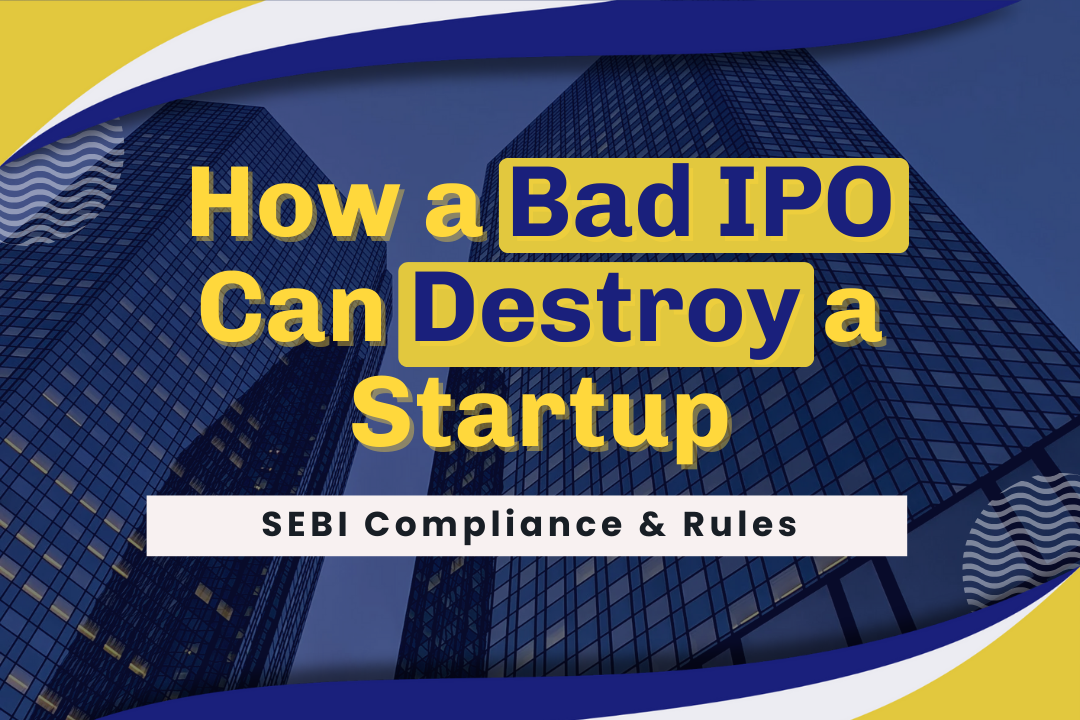Employee Stock Option Plan (ESOP)
Setting up an ESOP can help a company attract and retain talented employees while incentivizing them to work toward the company's success. Filing Buddy can assist in the process by providing expert guidance and assistance in drafting and implementing the ESOP plan.
Contact Us
An expert will call you within 24 hours. No payment required to get started.
Why Choose Us?
Experience expertise, tailored solutions, timely support, & a competitive edge - all under one roof

EXPERTISE & RELIABILITY
Trusted industry professionals ensuring compliance, accurate tax filing, and comprehensive services for your business needs.

TAILORED SOLUTIONS
Customized services to meet your specific requirements, including business incorporation, trademarks, patents, and seamless GST return filing.

TIMELY SUPPORT
Dedicated support team committed to providing prompt assistance, resolving queries, and ensuring smooth operations for your business.

COMPETITIVE ADVANTAGE
Gain a competitive edge with our comprehensive suite of services, enabling you to focus on growth while we handle your compliance and taxation needs.
What Is an Employee Stock Option Scheme
Employee Stock Option Plan (ESOP) is a scheme offered by companies to their employees to purchase the company's shares at a discounted price. It is a popular tool used by companies to attract and retain talented employees by providing them with a stake in the company's future growth. ESOPs can be beneficial for both the employer and employee, as it aligns their interests towards the company's success. These plans allow employees to purchase company shares at a predetermined rate, promoting long-term loyalty and better work performance. ESOPs are suitable for companies of all sizes and stages, and especially for startups looking to incentivize their employees.
For example, if an employee receives 400 shares, 100 will vest each year and increase in value with the company. ESOPs also help control staff turnover. Learn more about ESOPs, including their pros and cons and how they differ from stock ownership plans.
Benefits of ESOP in India
- ESOPs offer tax advantages and ensure fair value for shareholders.
- An employee stock ownership plan allows for a gradual transfer of ownership.
- ESOPs benefit employees who contribute positively and work for the company for a long time.
- ESOPs create independent, long-lasting businesses with tax benefits.
- An ESOP helps establish and maintain a legacy for the company.
Advantages and Disadvantages of an Employee Stock Ownership Plan
Advantages:
- ESOPs help baby boomers find a buyer for their companies in a saturated market.
- ESOPs provide tax benefits if the company meets certain requirements.
- ESOPs reward key management and employees while protecting the legacy and stability of the company.
Disadvantages:
- ESOPs are expensive to administer and can cost at least ₹40,000 to get started, with ongoing annual fees for trustee, legal, administrative, compliance, and valuation services.
- ESOP valuations may be lower than competitive selling procedures with multiple bidders, resulting in a reduced value.
- ESOPs can limit funds available for company expansion, talent acquisition, and new market exploration due to fees and buyback requirements.
- ESOPs involve many third-party fees, making it challenging to obtain unbiased opinions, and companies must take steps to avoid conflicts of interest and protect themselves from fiduciary liability allegations.
How Does an Employee Stock Ownership Plan Work?
The functioning of ESOPs can be understood as follows: Companies set aside ESOPs in a trust for a specific period, known as the vesting term. Once the vesting period is over, employees can use their ESOPs to purchase company shares at a predetermined price and quantity. The selection of employees, the number of shares to be offered, and the prices are all determined beforehand. The prices offered to employees are typically lower than the market value of the shares.
Checklist for Employee Stock Ownership Plan 2023-2024
- Check the articles for any specific provision on the issue of shares under the employee stock Ownership scheme.
- Draft the ESOP scheme. Convene the Board Meeting and pass the scheme.
- Give notice of the general meeting, including the number of ESOPs to be granted
- Hold a general meeting for Approving the ESOP Scheme by passing a special resolution (ordinary resolution in case of a Private Company) authorizing the issue of shares under ESOP and the formation of the compensation committee
- Obtain approval of shareholders by way of separate resolution in case of-
- (a) grant of an option to employees of a subsidiary or holding company; or
- (b) grant of an option to identified employees, during any one year, equal to or exceeding one percent of the issued capital (excluding outstanding warrants and conversions) of the company at the time of grant of the option.
- Draft a copy of the certificates
- File form MGT-14 to submit the special resolution within 30 days of passing the resolution
- After approval of the ESOP scheme by the shareholders, grant options to the eligible employees.
- Vesting of Options. There shall be a minimum period of one year between the grant of options and the vesting of options.
- File Form-PAS-3: As and when options are exercised file form PAS-3 (Return of Allotment) with ROC.
- Disclose ESOP in Director Report (DR)
- Maintain the register of ESOP in SH-6 at the registered office of the company or such other place as the board may decide
- Authenticate entities in the register by CS or any other person authorized by the board.
Eligibility for Employee Stock Ownership Plan
The Indian Revenue Service (IRS) specifies that to be eligible for an ESOP, an employee must be at least 21 years of age and eligible in the year of joining the company. If the plan has immediate vesting, the employer can restrict eligibility to employees who have completed two years of service.
How to Register an Employee Stock Ownership Plan?
- Draft the ESOP Rules: This document will outline the terms and conditions for all Ownership granted under the plan, including the process for granting ownership, how and when employees can exercise their ownership, and what happens to the ownership on an exit event or if an employee leaves. It will include the following schedules:
- Schedule 1: A grant letter outlining the terms of the ownership to be granted to recipients.
- Schedule 2: The form of exercise notice to be provided to the company when an ownership holder wants to exercise their vested ownership.
- Schedule 3: An ownership certificate that records the number of ownership, exercise price, and vesting provisions.
- Approve the Rules and the OwnershipPool: Once satisfied with the ESOP rules, the directors and shareholders need to sign corporate approval documents to adopt the ESOP rules and set up the ownership pool.
- Board and Shareholder Approval: This step involves passing resolutions, including:
- Approval of the Employee Stock Ownership Plan rules.
- Deciding the total number of owners in the ESOP pool.
- Authorisation for the board to grant ownership to recipients of their choosing.
- Authorisation to issue shares on the exercise of ownership.
- Shareholder Waivers and Consents: If your constitution and shareholder's agreement include pre-emptive rights on the issue of new shares, these shareholders with preemptive rights must sign a waiver regarding any ownership granted under the ESOP.
Grant your ownership
- Prepare Your Directors' Resolutions:
- To grant ownership, prepare a new set of director's resolutions in writing.
- These resolutions approve the grant of ownership to a specific recipient.
- Send Each Recipient Their Grant Letter:
- Issue each recipient their ownership certificate after receiving their grant letter.
- Use the ownership certificate form found in Schedule 3.
- Leave the schedule blank and create a fresh, separate Word document for each certificate.
- Update Your Register Ownership:
- Keep an ownership register as an internal record of all granted ownership.
- Record vesting schedules, expiry dates, and exercise dates.
Documents for Employee Stock Ownership Plan
- Minutes documenting the discussions and decisions made during the board meeting.
- A special resolution that approves the ESOP, including an explanatory statement.
- Minutes documenting the discussions and decisions made during the general meeting.
- A report by the board detailing the implementation and status of the ESOP.
- A register that records the details of the employee stock ownership plan, such as grant dates, vesting schedules, and exercise dates.
- Filing of Form-PAS-3 and Form-MGT-14 with the Registrar of Companies.
Procedure for Issue of Employee Stock Ownership Plan
The AOA must authorize the issuance of shares through an ESOP, and if it doesn't, an EGM must be conducted to amend the AOA and include the provision.
- Draft an ESOP scheme in accordance with the Companies Act of 2013.
- Present the draft resolution at a board meeting for approval by all directors and shareholders.
- Obtain acceptance of the ESOP scheme from all shareholders and directors for further resolution.
- Discuss the price of shares to be issued and the fixed date at a general meeting to pass a special resolution for issuing the ESOP.
- File MGT-14 with the ROC for passing the board resolution and provide draft minutes to all directors within 15 days of conclusion.
- Pass the special resolution for issuing shares under the ESOP scheme at the general meeting for employees, directors, and officers of the company.
- File the MGT-14 form with the ROC within 30 days of passing the special resolution.
- Create and maintain a register of employees' stock ownership in form SH-6, including all ESOP details granted to employees.
To Whom Can The ESOP Be Issued?
ESOPs in India are governed by the Companies Act, 2013, and the Securities and Exchange Board of India (Share Based Employee Benefits) Regulations, 2014.
- Permanent employees of the company, both in India and abroad, can be issued ESOPs. Directors of the company can also be issued ESOPs, but not independent directors.
- Employees of the company's subsidiaries or holding companies can also be issued ESOPs, provided they meet the eligibility criteria specified in the ESOP scheme.
- Employees who are members of the promoter group can be issued ESOPs, as long as they are not promoters themselves.
- ESOPs cannot be issued to non-employees such as consultants, advisors, or contractors. However, the company can issue equity shares to non-employees subject to certain conditions.
Process and Allotment of ESOP
- Grant of ESOPs: Eligible employees will be granted ESOPs, which specify the number of shares, exercise price, and vesting period per the scheme's terms.
- Exercise of ESOPs: Employees can exercise their ESOPs after the vesting period ends and the ownership becomes exercisable. The exercise price is specified in the ESOP agreement. The company must ensure liquid shares are available for the ESOP scheme.
- Allotment of Shares: Once the ESOPs are exercised, the company will allot shares to employees who exercise ownership. Share allotment must be paid within 15 days from the date of exercise of ESOP.
- Transfer of Shares: The company must transfer shares to the employees' Demat accounts within two days of the allotment. The company must also inform the stock exchange where its shares are listed about the allotment of shares to employees.
- Payment for Shares: The employees must pay the exercise price for the allotted shares within six months from the date of allotment.
- Compliance with Regulations: The company must comply with all applicable regulations while issuing and allotting ESOPs to employees.
- Reporting Requirements: The company must comply with the SEBI regulations' reporting requirements, including making periodic disclosures to the stock exchange and filing necessary reports with SEBI.
Contact Us
An expert will call you within 24 hours. No payment required to get started.








.png)
.png)
.png)
.png)
.png)
.png)
.png)
.png)
.png)
.png)
.png)
.png)
.png)
.png)



.webp)
.webp)

.webp)



